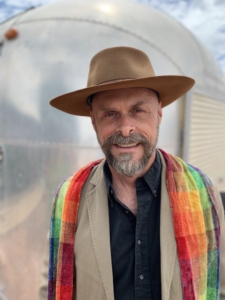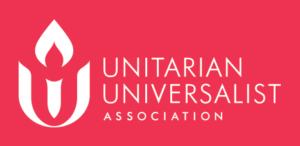We Got Next
We Got Next Rev. Ron Phares MVUU 8.26.18
Welcome! It is the intention of this hour of your week to be a practice. One of the consistent hopes of this practice is to reduce reactivity in your life so as to buy you a moment in which to make a reflective decision. That decision will be informed by the story of who you are and how you act that is aided and augmented by our reflections here today.
So the first step in being non-reactive, is to slow down. To take a breath. And that is what you can do right now. Just by carving out time from your week to be here, to devote to something other than your to do list, you have extricated yourself from the rhythm of reactivity. Embrace that move. Capitalize on it. As we begin our practice, our first turn is to slow down. To take a breath. To practice by preparing to practice….
Reflection Last week was a historic week around here. This congregation voted to move in a radical new direction. Radical.
Now, radical is an oft overused adjective, especially in liberal religious circles. And it is usually used aspirationally. Radically is frequently paired with the phrase, “We want to be…”
Or it is a present tense rendering of a vision or mission which, by their nature are NOT present realities. So, you’ll hear, “We are radically inclusive,” when what is meant is more like, “We aim to be radically inclusive.” This keeps it at safe distance, see. Like we say radically, but we mean maybe tomorrow. It’s a promise that all too often remains only a promise.
It’s better than nothing. “Radical” is such an earnest, striving, yearning, hopeful word.
It is also a dangerous word. Dangerous to the guardians of the status quo. Time was there were radicals a’plenty. To hear it told, back in the 60’s radical was practically a vocation. You could be a student radical and graduate to anti-war, anti-segregation, anti-nuclear weapon radical. And then as our mother earth began to get sick from all the garbage humans had begun to make, some folks became environmental radicals. Not as many, but some. I know some of you may have once been radicals.
Not all of you. Not many of you, most likely. Until now. With last week’s vote, y’all just radicalized yourself. And I am so excited for you. For us.
I’m pretty sure that what we’ve set out to do has not been done in Unitarian Universalism. If so, it’s rare. So what is it we have done?
Well, first off, we’ve gone public! Breaking from custom, we’ve decided to build our future right in the thick of things, not hidden off in some remote sanctuary removed from the eyes of all but those who know to look. That there is a secret handshake way doing church. Not welcoming, no matter what they say. Sure, you’re welcome… if you can find us.
And then there is the opposite impulse, the desire to set up shop where people do not look like most of us. This is a well meaning, but unreflective aspiration. What looks to us like a gesture of magnanimity, looks to them as another version of the colonial mindset, an arrogant assertion that we know better and they will be better if only they knew about us.
And heck, I believe there is some truth to that. I do think we have a way to be religious the world needs, a way that has nothing if not integrity and a saving message of acceptance and connection. That’s a progressive gospel the world needs more of everyday. But it needs to be invitational not colonial. Not colonial, but neither hidden!
But you! You have threaded the needle! We will remain in our neighborhood. This neighborhood. But we will be in a place that is visible, and prominently visible, to so many people who do not know what Unitarian Universalism is. We will be visible and newly relevant to some people who do not look like most of you and other people who think quite differently than we do.
We will invite the former and win over the latter and let Northwest Tucson know there is a place where the spirit of liberal religion, freedom, integrity, democracy, compassion, acceptance, and curiosity are cultivated and practiced!
Being visible to all walks without getting in their way… that is radical. It is exactly what the world needs. And it is exactly what Unitarian Universalism needs. What our country needs. What we need. We will change lives. And our lives will be changed. You life.
In this instance we have the curious distinction of being both the radicals… and the guardians of status quo. And this state of being will have implications. Or, if I am being a little more frightening: This move will have consequences.
Change is scary. You have girded for the weird. And the weird has lived among us and reared its head and spazzed us out and made us touchy and grumpy as it’ll do. And though it hasn’t always been pleasant, we have come through. We’ve managed to laugh with it some. We are stronger for it, more aware of what it means to be a covenanted community, more certain of who we are as people and as a people.
With last week’s vote, I can assure you one thing. The weird: it ain’t going away. In some ways the stakes will be lower. It won’t be so material. But in some ways the stakes are higher, for they will be more about identity.
I mean, make no mistake, moving across the street from the Home Depot is bold and beautiful and I am so proud of you. But… there are risks. This move? To do it right? You’re going to have to reach. Just moving there will take work. And you’ll do that because you can and are good at that. But to do it right? You’re going to have to reach.
And as I told the kids, reaching doesn’t guarantee victory, but not reaching guarantees that you not only won’t be the best, you won’t be your best. This is true because even if you don’t “finish first”, even if you are not victorious, whatever that means in this instance, even if you are not victorious, you will learn something – deep – about yourself by reaching. Always. There is a spiritual dimension to the very act of reaching.
And I am NOT talking about debt. Well, not exactly… we will be going into debt to bring this vision to reality. But there is some wisdom in the notion that, at certain times in the life of any organization, debt is a positive indicator. Debt free living, especially for a church, can also be a good thing. But if it is a perpetual state, it may indicate that that congregation is resting on its laurels. And in a tradition that does from time to time trend toward self-satisfaction, debt free perpetuity can be a seduction into inertia. In some cases… in our case, debt is a sign of life. It is skin in the game, as it were. It is a commitment to a calling.
It is a radical maneuver. But as radical as that is, it pales in comparison to the work – the good work, the fun work, the transformative work – demanded by our new location. For that work is spiritual in essence and concerns identity. We need to make space for a diversity that we have not seen before. We will need to guard against new guard vs old guard thinking. We need to examine our assumptions about ourselves as individuals, as a congregation, and as a faith tradition.
And for this congregation in THIS tradition, that kind of work is absolutely radical and entirely necessary. And it is necessary and radical whether we make this move or not. But the fact that we voted to do so says a lot about you. It makes me proud to serve as your minister. I can not
wait for my next district ministry days – when ministers from the whole pacific southwest gather. I am going to brag and brag about you all.
We now have a debt to our future now that goes WAY beyond financial. It is a calling. And while the radical remains, for the moment, aspirational, this one, glory to god, has a deadline.
It’s not so much “we aim to be” as “we better be,” or perhaps, “we best get going.” It not tomorrow. The time is now. So how do we get going?
Well, it’s church. So we probably start with Sundays. Then we move from there into some educational and reflective programming. Then we carry that into justice work and our personal spiritual practices and daily lives and all of that then informs Sunday reflection topics, forming a feedback loop that evolves us onward.
So. Sundays will change some. Not a lot. Sort of not a lot. Already I had been wanting to shift us a little bit more out of the that form of “worship” based on the protestant model, the hymn sandwich – a model that is clearly in decline and apparently insufficient to the future. This shift, for us, will not be radical. But it will be a shift.
It had been my intention to craft a more participatory, more embodied, and more sensual practice. To engage more than hearts and minds. To form some muscle memory in practice so that when the time comes, your response to life’s eruptions, conditioned by practice, will be automatic and grounded in your chosen faith.
We will setting aside some parts of the liturgy we have been using for the last couple years. We will be adding other practices. One of the keys to non-reactive living is reflection. Not for nothing did we change the name from sermon to reflection. Sermon is top down. Reflection is invitational. This is not only aspirational – in that I want you all to be reflecting with me – it is also accurate – in that I know you already are reflecting with me.
So, we will take that reflective practice one step further.
Talk about the Mini-notebook.
You will pick it up on the way in. At some point I ask a question. You will have a few minutes to write or draw a response. Anonymous. You will be able to see other’s reflections. That is embodied reflection.
There will be some other smaller shifts as well. One not so small shift remains in the exploratory phase at this point. Those of you who attended Cheryl Ponce’s memorial know that we
conducted that service in both English and Spanish. Even as I was composing that service, I felt that somehow it was right. It felt good to do in a way that went beyond that particular service. I had to ask myself why.
And here is what came to me. Doing a bi-ligual service in a congregation that is by and large not bi-lingual is not a tribute. It is not even really only an invitation. What it is… it is a holding of space. And until it is a service to those who feel invited by it – spanish speakers – it is a reminder of where we are and who isn’t here. So, if I can figure out the logistics of that, we may move to doing bi-lingual practices once a month or once a quarter or something. And this too is a practice, preparing for our radical future.
Also, Kimberly and I are finding ways to get more music in service. And more of you into that music. And… new music. Over the summer I instructed our music team that we should have no music in church (other than some hymns) that was written by white men from the year 1500 to 1960.
Now, I’ve backed off of that somewhat. But, there is so much music out there that we, as a tradition, need to find our way to. And we will. Additionally, Kim has agreed to educate us a little whenever we are about to sing a song that has been borrowed from other traditions and cultures.
Kimberly is also putting together what I’m calling a missionary choir. I call it missionary because we haven’t come up with a name and because it will be focused on performing one song. Like a mission.
Let’s say you really want to be a part of the regular choir, but just can’t commit to a weekly rehearsal for 9 months. Well, you let Kimberly know and then later she selects a song and recruits to that song. And by and large, these won’t be tradition choral numbers either. One of the first one’s on the docket is by the Village People I think.
Of course, the traditional choir will still be operational and doing some really moving pieces this year. And yes, you can do both.
So that is Sundays. Now we’re going to have to do some work during the week as well. It can’t just be on Sundays. You’ll want to participate in those. You may also want to lead some of those.
We really need to reflect on learning about where white supremacy culture has shaped our nation, our tradition, our congregation, and ourselves and how to dismantle it in our culture and
in ourselves. Now, in saying that I do not want you to feel judged. Challenged? Maybe. Curious? Essentially.
These classes are offering you another opportunity to become free, to identify and shed the systems and psychologies that make of you an unwitting oppressor and to work for the freedom of others at the same time. So, we will explore whether or not the subtle and not so subtle manifestations of racism can be seen through the lens of addiction. We will explore applying the 12 Steps to that addiction.
I also hope to explore what the consequences of centering whiteness, maleness, straightness are… or perhaps what unintentional centering of any kind does and what to do about it. How do we move out of a domination paradigm and into a cooperative paradigm. And I invite YOU to approach me with some ideas of your own to lead us into our future.
Do you want to teach a class or a workshop or put together a lecture series? Email me. It is not necessary that every idea is about identity and justice. But it would be great if you could tie us into that in some way or another.
Y’all, we have got a year ahead of us. It will NOT be a perfect year. It WILL be messy. We will – I WILL – make mistakes. You – or at least the person next to you – will make mistakes. But if we don’t, how will we ever practice being happy? Because, as the girls kung fu teacher says, the key to happiness is forgiveness. We have a year of forgiveness before us! Hallelujah!
We no longer have the lazy luxury of hypocrisy. “The radical” is no longer in the future. It remains aspirational, but it is immediate. It is you. The radical is you. It is time to reach. The promise is now. The promise is you. Right now. Today. You look in that mirror. You are the promise. Reach for it.



